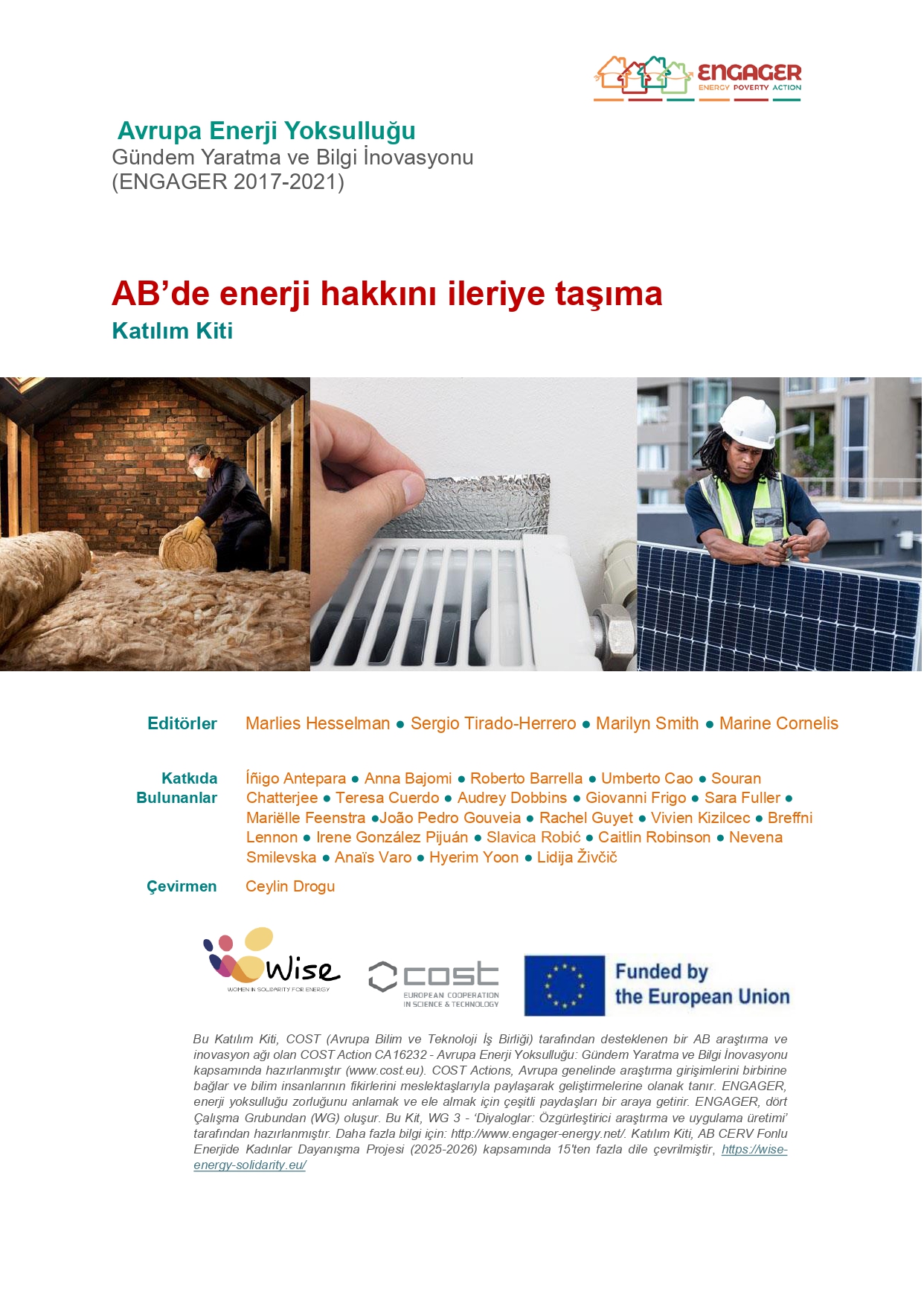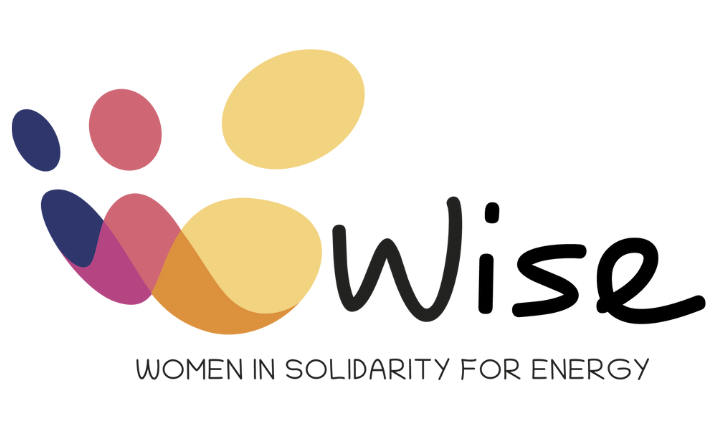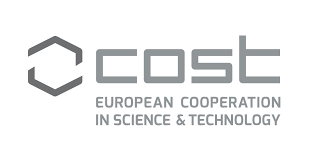the right to energy
toolkit – Turkish
Editors: Marlies Hesselman, Sergio Tirado-Herrero, Marilyn Smith, Marine Cornelis
Contributing Authors: Íñigo Antepara, Anna Bajomi, Roberto Barrella, Umberto Cao, Souran Chatterjee, Teresa Cuerdo, Audrey Dobbins, Giovanni Frigo, Sara Fuller, Mariëlle Feenstra, João Pedro Gouveia, Rachel Guyet, Vivien Kizilcec, Breffni Lennon, Irene González Pijuán, Slavica Robić, Caitlin Robinson, Nevena Smilevska, Anaïs Varo, Hyerim Yoon, Lidija Živčič
Translation: Ceylin Drogu
2025
Citation
The right to Energy Toolkit, ENGAGER, 2025

Toolkit
This toolkit on the right to energy was created by the ENGAGER network and translated into various European and migrant languages with the support of WISE (Women in Solidarity for Energy).
Summary
Worldwide, millions of people lack access to reliable and affordable energy. Even in Europe, tens of millions of households experience energy poverty — struggling to heat or cool their homes and pay their energy bills. Despite energy being essential for health, well-being, and social participation, it is still not officially recognized as a fundamental human right like water or education.
This document advocates for the recognition of a right to energy, meaning that every individual should have access to essential energy services such as lighting, heating, cooking, and powering appliances. The right to energy is built on three pillars: affordability, access, and energy democracy — the right to participate in energy decision-making. A human rights-based approach requires governments and relevant actors to actively respect, protect, and fulfil these rights.
Within the framework of the European Green Deal and EU legislation, policy measures are being developed to combat energy poverty, but implementation remains inconsistent and insufficient. Greater attention is needed for vulnerable groups, including those with low incomes or health issues, as well as for structural discrimination, such as that faced by Roma communities. Crucially, disconnections due to unpaid energy bills should be banned, as they worsen the situation for already at-risk households.
A rights-based approach emphasizes the importance of minimum energy standards, tailored to local contexts. Examples from Spain and the Global South illustrate how energy policies can be adapted to people’s real needs. Transparency, access to information, legal protection, and public participation are essential to promoting energy democracy and enabling people to claim their rights.
Thus, the right to energy must go beyond rhetoric — it should be embedded in law, policy, and concrete action, ensuring a fair and inclusive energy transition that leaves no one behind.



